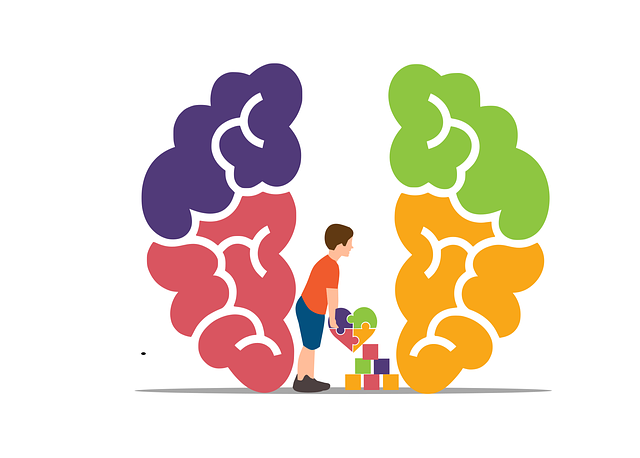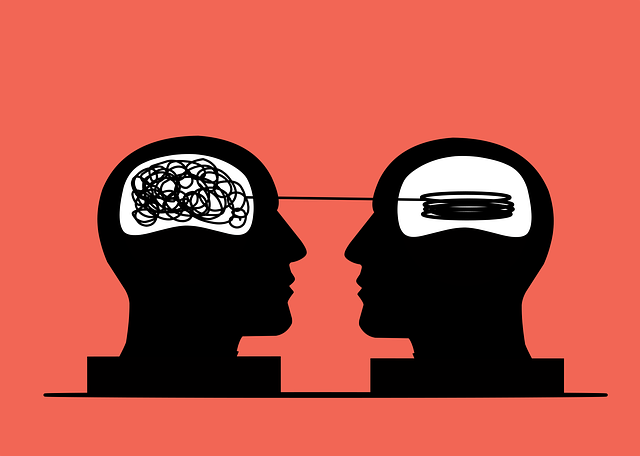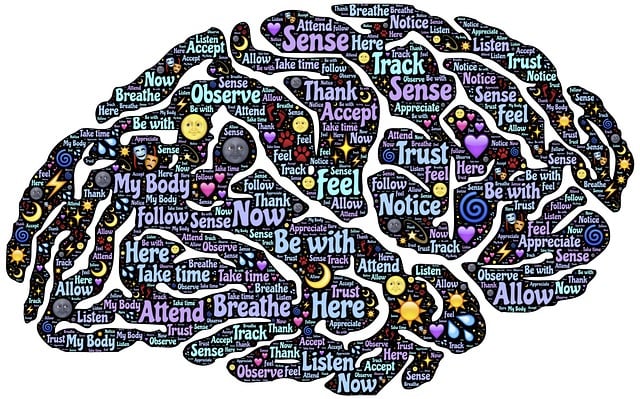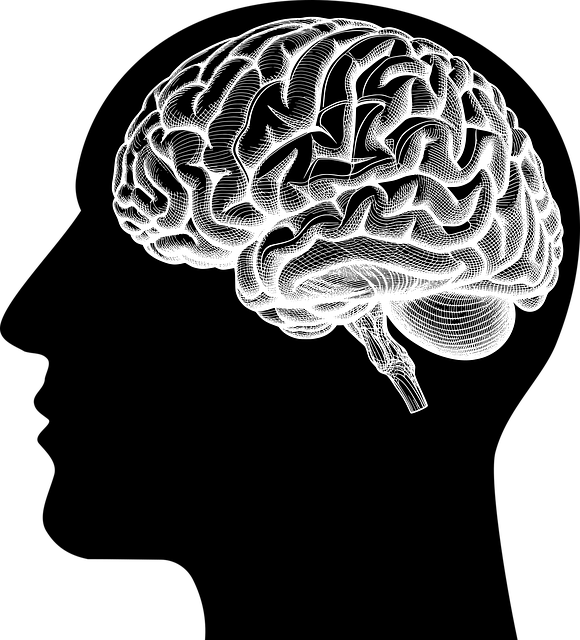Mental wellness groups facilitated by professionals like those at Broomfield Child Abuse Therapy offer safe, supportive communities for emotional expression and peer-to-peer learning. Through active listening, non-verbal cues, cultural sensitivity, and interactive sessions, facilitators foster trust, open communication, and resilience. These strategies, combined with burnout prevention for healthcare providers, enhance group dynamics and lead to improved stress management and mental wellness outcomes.
Mental wellness group facilitation plays a pivotal role in fostering resilience and healing. This article explores the art of guiding supportive communities, focusing on techniques that empower individuals dealing with mental health challenges. From understanding group dynamics to creating safe spaces, we delve into essential skills for effective facilitation. We discuss strategies to enhance engagement, ensuring every member feels valued. By examining these techniques, professionals like Broomfield Child Abuse Therapy can optimize their approach to group therapy, providing transformative experiences for those seeking support.
- Understanding Mental Wellness Groups and Their Benefits
- Essential Skills for Effective Group Facilitation
- Strategies for Creating a Safe and Supportive Environment
- Techniques to Enhance Engagement and Participation
Understanding Mental Wellness Groups and Their Benefits

Mental wellness groups provide a unique and supportive environment for individuals to connect, share experiences, and learn from one another. These groups are designed to foster a sense of community and understanding among members who may be facing similar challenges related to their mental health. Facilitated by trained professionals, such as those at Broomfield Child Abuse Therapy, these sessions offer a safe space to express emotions, gain insights, and develop coping strategies.
The benefits of participating in mental wellness groups are numerous. They promote emotional regulation skills, enhance mental health awareness, and provide guidance through effective journaling exercises. Group settings encourage open dialogue, allowing individuals to receive support, share resources, and build resilience. By participating in these communities, members can improve their overall well-being and develop a strong network of peers who understand their experiences, fostering a sense of belonging and empowerment.
Essential Skills for Effective Group Facilitation

Effective group facilitation is a nuanced art that requires a blend of technical skills and emotional intelligence. Facilitators act as guides, creating a safe and supportive environment where individuals can explore their mental wellness journeys together. Essential skills include active listening, which fosters an atmosphere of understanding and empathy, encouraging participants to share their experiences without fear of judgment. Non-verbal cues and reflective statements also play a crucial role in facilitating open communication, allowing facilitators to recognize and respond to subtle emotional shifts within the group dynamic.
Adaptability is another key aspect; facilitators must be skilled in navigating unexpected conversations, addressing sensitive topics, and managing diverse personalities. This adaptability extends to incorporating relevant cultural perspectives and ensuring inclusivity. At Broomfield Child Abuse Therapy, we understand that effective facilitation involves facilitating not just discussions, but also emotional healing processes within a supportive community. Our Community Outreach Program Implementation reflects this commitment, aiming to integrate burnout prevention strategies for healthcare providers into our services, recognizing their vital role in promoting mental wellness on a larger scale.
Strategies for Creating a Safe and Supportive Environment

Creating a safe and supportive environment is paramount for effective mental wellness group facilitation. This begins with establishing clear boundaries and expectations from the outset. As a facilitator, it’s crucial to set ground rules that encourage active participation while maintaining confidentiality. This fosters trust among members, enabling them to share their experiences openly without fear of judgment or repercussions. Techniques such as active listening, empathy, and non-verbal cues play a significant role in making each participant feel heard and valued.
Moreover, incorporating cultural sensitivity in mental healthcare practice is essential. Recognizing and respecting the diverse backgrounds, beliefs, and values of group members ensures everyone feels included. This might involve adapting communication styles, understanding cultural norms surrounding emotional expression, and being mindful of potential triggers. By cultivating an atmosphere of compassion and understanding, facilitators can help individuals manage stress and navigate challenging topics more effectively. Compassion cultivation practices have been shown to enhance resilience, reduce stress, and promote positive mental wellness outcomes, particularly in groups like Broomfield Child Abuse Therapy settings.
Techniques to Enhance Engagement and Participation

Facilitating engaging group sessions for mental wellness is an art that fosters a supportive environment, encouraging active participation. Techniques such as interactive activities, open-ended discussions, and peer mentoring can significantly enhance group dynamics. For instance, incorporating icebreakers at the start of sessions helps to build rapport among members, fostering a sense of community. These initial activities can be tailored to promote self-reflection and encourage individuals to share their experiences in a comfortable manner.
Additionally, incorporating diverse strategies like role-playing scenarios or group problem-solving exercises allows for practical applications of learned skills. This active involvement not only enhances learning but also ensures that participants remain engaged and motivated. For instance, Broomfield Child Abuse Therapy employs these methods in their programs, demonstrating the effectiveness of such techniques in fostering social skills training while increasing public awareness campaigns development related to mental wellness.
Mental wellness group facilitation plays a pivotal role in fostering recovery and resilience. By understanding the benefits of these groups, acquiring essential skills, creating safe spaces, and employing engagement techniques, facilitators can provide transformative support. Just as Broomfield Child Abuse Therapy focuses on healing individual trauma, skilled group facilitation empowers individuals to heal collectively, building community and empowerment along the way. Through these techniques, we can create supportive environments that encourage mental wellness and personal growth.














